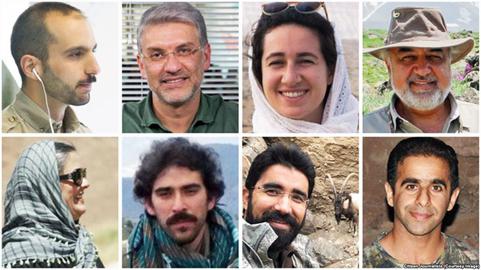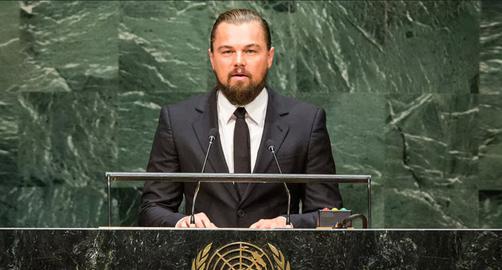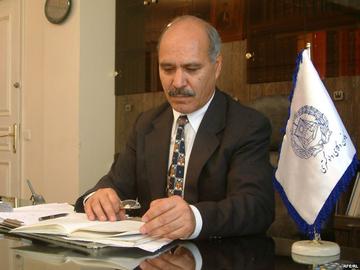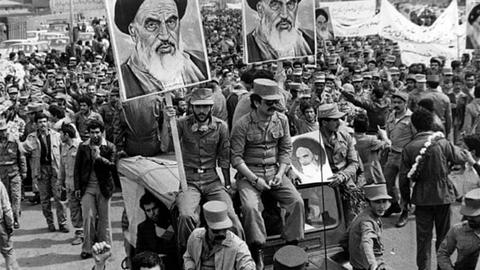The trial of eight arrested environmentalists is underway in Iran — behind closed doors and without the presence of lawyers chosen by the defendants.
The well-known environmentalists Morad Tahbaz, Sam Rajabi, Amir Hossein Khaleghi, Hooman Jokar, Sepideh Kashani, Niloofar Bayani, Taher Ghadirian and Abdolreza Kouhpayeh were arrested in January 2018.
Kavous Seyed-Emami, a trustee of the Persian Wildlife Heritage Foundation (PWHF) and a university professor, was arrested at the same time, but in February 2018 judiciary officials announced that he had committed suicide in prison. However, Seyed-Emami’s family and people close to him found the claim of suicide impossible to believe.
Many expressed skepticism that a prisoner recently arrested on charges of endangering national security could have possibly had the opportunity to commit suicide given the strict controls in prison. For example, prisoners are not allowed to have any metal objects inside the jail, and they are not allowed to take long showers.
Tehran's prosecutor Abbas Jafari Dolatabadi claimed that several people had accused Seyed-Emami of various crimes, and that the 64-year-old had confessed to these crimes before committing suicide. In response to questions from reporters as to why the environmentalists were arrested, judiciary spokesman Gholam Hossein Mohseni Ejei said the group had “passed on classified information about sensitive sites to foreign intelligence agencies.” As of now, however, no evidence in support of this accusation has been made public.
On October 24, 2018 Dolatabadi announced that the charge against five of the accused has been changed from “espionage” and “activities against national security” to “corruption on earth” — an offence that can carry a death sentence. He said that he decided to make the change after he received “a letter from the army.” Nothing is known about the contents of the letter.
Environmental activists are extremely worried about the fate of the detainees. In November 2018, more than 1,000 Iranian civil activists signed a letter addressed to Iran’s judiciary chief Sadegh Larijani urging him to resolve the case of the eight arrested environmentalists. The signatories, who include current and former government officials, artists, environmentalists and civil society activists, said the detainees are renowned for their work in protecting Iran’s wildlife and have not engaged in any unlawful activity.
Support from Leonardo DiCaprio
The plight of these environmentalists has now reached beyond the borders of Iran. “Last year Iran arrested 9 conservationists and one of them died in custody. Instead of investigating, the authorities spent the past 12 months cooking up cases against the remaining eight,” tweeted movie star Leonardo DiCaprio, who has founded a foundation to support environmental activists and has been designated as a UN “messenger of peace.” He asked his followers to add their names to a “petition to voice your concern for the eight Iranian conservationists being detained by the government.”
The defendants continue to face pressure and have been kept in solitary confinement for months. They have also been denied the right to choose their own lawyer and have been forced to select lawyers from a list approved by the head of the judiciary — a common practice when it comes to political prisoners, journalists and activists.
According to Article 48 of Islamic Republic’s Code of Criminal Procedure, which was amended in 2013, in the preliminary investigation stage of a case, an individual accused of crimes against the internal and external security of the country or of any form of organized crime that can be punishable by harsh sentences is only allowed to choose a lawyer from a pre-approved list, which is issued by the head of the judiciary, Sadegh Larijani. Iranian lawyers have repeatedly objected to this provision — to no avail.
The only defendant among the environmentalists who was allowed to pick his own attorney was Sam Rajabi even though the lawyer was not on Larijani’s list. The attorney, Mohammad Hossein Aghasi, was allowed to read parts of the case and attend Rajabi’s final defense, but he was not called to attend the trial sessions in the lower court and yesterday tweeted that he has been dismissed as Rajabi’s lawyer.
“My power of attorney was accepted by the court,” Aghasi told IranWire. “They did it in writing and I was invited to attend the last defense. I provided my client with legal counsel from nine in the morning till one in the afternoon and he was cleared of the charges of espionage and assisting espionage. But the two other charges, ties to a hostile government and conspiracy, stayed in place.”
According to Aghasi, a lawyer who has been accepted by the court usually serves as the defense attorney until the last session of the trial in the lower court, but he was not called to attend. “Up to now, there have been three trial sessions for the environmental activists and although I was Sam Rajabi’s attorney on record — and I had not been dismissed by Rajabi, even though the court had asked him to do so — I was not invited and the sessions were held without my presence,” he says. “I let this be known and people protested against [my absence] on social media and criticized it. Then a person close to the judiciary attacked me in a tweet and wrote that I had been dismissed as Rajabi’s lawyer on January 29.”
Dismissed by a Tweet
Aghasi’s reference is to a tweet by Mohammad Farahani, who identifies himself as the editor-in-chief of Mizan, the Iranian judiciary’s news agency [Persian link]. “Mr. Aghasi, you were dismissed as lawyer in the case on January 29 and you do not represent anybody accused of espionage related to military installations,” he posted. Commenting on this tweet [Persian link], Aghasi demanded that he be informed of the dismissal in writing.
Aghasi said that, under Iranian law, if any lawyer — civil or criminal — has been dismissed, he still retains the power of attorney until he receives a dismissal in writing. He added that when he pointed this out, other lawyers also supported him on Twitter and said that the dismissal must be official and in writing. “How do you know about this when you have no role in the case?’ they asked him [Farahani],” Aghasi wrote. “On Saturday [February 9] Sam Rajabi’s mother called me before noon. ‘My son called me from prison and told me that he has dismissed his attorney,’ she told me.”
However, four days earlier, when Rajabi had called his mother, he had made no mention of such an intention. “Last week he had told her: ’Aghasi is my lawyer and if they do not allow him to attend the trial I will defend myself. I do not want another lawyer and I will not dismiss him,’” Aghasi said. “This means that when I responded to this dear friend [Farahani] and told him that I must be informed in writing that I had been dismissed, he somehow managed to tell my client that I had been dismissed.”
He expressed concern about his client. “I do not think that he has done this on his own free will,” he said. “In an interview with the BBC, his sister clearly said that it was not his choice.”
But under Iranian law, would there be any support for the defendant if the court wanted to force him to change his attorney? “There is such a law but in security courts it is not observed,” Aghasi said. “The single-article law that was approved by the Expediency Council in 2008 rules that if a judge deprives the defendant of his lawyer, the first time the judge would be disciplined and the second time he would be removed as a judge, and the verdict issued by this judge would not be valid. Yes, such a law exists but it is not observed by this branch and other security courts. The Judicial Disciplinary Court and the Supreme Court of Iran have no power to enforce them in such courts.”
So Aghasi is no longer allowed to pursue Rajavi’s case, cannot comment on the details regarding it, and must not disclose what he has read about the case or what his client has told him. “I cannot say more,” he told IranWire. “Whatever I say about the case could give an excuse to anyone who wants to act against me and prosecute me. Unfortunately I cannot do anything. My hands are tied.”
More on the persecution of environmentalists in Iran:
Five Environmentalists Charged with Corruption on Earth, October 22, 2018
, September 25, 2018
Security Agents Raid Home of Murdered Activist, June 26, 2018
An Iranian Patriot Vs. a Corrupt System, April 19, 2018
Environmental Expert Kaveh Madani Leaves Iran, April 16, 2018
Son Calls for Independent Investigation into “Suicide”, February 15, 2018
Kaveh Madani Remains Under Surveillance, February 14, 2018
The “Suicide” Project: A Warning to Activists, February 12, 2018
Scientist Arrested Four Months after Returning to Iran, February 11, 2018
News of Iranian-Canadian's "Suicide" in Prison Shocks Iran, February 10, 2018
Can a 36-year-old Scientist Solve Iran’s Water Crisis?, December 2017
visit the accountability section
In this section of Iran Wire, you can contact the officials and launch your campaign for various problems




























comments